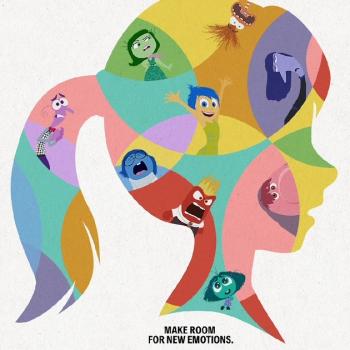In his “Letter to a Friend” Nagarjuna references a teaching called “The Tenfold Virtuous Path.”
This text, by the way, was written to a king that Nagarjuna was friendly with. Because it was written to a king, we can take these instructions ourselves as laypeople (a king is not a monk). This text represents an outline of the Mahayana Buddhist Path. Today we’re going to explore Nagarjuna’s teaching on these ten virtues and their opposites, the ten non-virtues.
He says:
“With body, speech, and mind always rely
On wholesome deeds, the tenfold virtuous path.
Avoiding liquor at all costs, thus find
True joy to lead a life of virtuous deeds.”
The friend Nagarjuna is writing to is a king, so it’s a layperson like you and me, not a monk. Because Nagarjuna went out of his way to declare the importance of avoiding liquor, I suspect this king had something of a reputation around alcohol. I don’t know for sure, of course, but I think Nagarjuna is warning an alcoholic here. He’s warning us about the risk of drinking liquor too.
So, this is Nagarjuna’s suggestion for happiness. Lead a life of virtue and avoid alcohol. It doesn’t sound that hard at first, but what is a life of virtuous deeds?
It’s significant that he says “body, speech, and mind.” We want positive actions, positive words, and even positive thoughts.
So, about that tenfold virtuous path. This may not be a list you’re familiar with. I’m going to list the ten things on the virtuous path, the things to cultivate. Then I will list their opposites, the things to avoid. These all are in the categories of body, speech and mind. Three physical actions, four verbal actions, and three mental actions.
Body
- Protect Life
- Give Generously
- Maintain One’s Discipline
Speech
- Speak Honestly
- Reconcile
- Speak Pleasantly
- Speak Meaningfully
Mind
- Generosity
- Loving Kindness
- Correct View of Reality
These mostly speak for themselves, in my opinion. Giving and cultivating generosity sound the same at first, but #2 is about giving to others and number #8 is more related to not wanting other’s possessions so much.
So, these ten virtues have an opposite version, as I said. These are the ten non-virtues, ten things to avoid:
Body
- Taking Life
- Taking What Isn’t Given
- Sexual Misconduct
Speech
- Lying
- Sowing Discord
- Harsh Speech
- Worthless Chatter
Mind
- Covetousness
- Wishing Harm on Others
- Wrong Views
Body
It’s better to protect life than to take life. We know this intuitively. We learn very early in life that others don’t want to be harmed just like we don’t.
Don’t take what isn’t given is another way of saying don’t steal, but it’s a little deeper than that. Don’t mislead people into giving you things. Don’t cheat at poker. Don’t go on a date with someone you’re not really into because you want a free meal. Think about giving instead of thinking about taking all the time. Thinking about taking all the time doesn’t make us happy anyway. There are always more things to take.
Our sexuality gets in our way sometimes. The flames of passion cause all sorts of harm in life. Nagarjuna is talking to a layperson here, so we can surmise that he doesn’t mean be celibate (also, he could have come out and said that). But what is sexual misconduct? I think it’s fully consensual relationships that are thoroughly transparent. There is some diversity of thought on this, though. The monk Thich Nhat Hanh said sexual relationships should include love and a long-term commitment. The first time I read that I thought, “TNH is such a square,” but as I get older I think about all the problems in life I could have avoided if I had followed a rule like that.
Speech
I like that speech is showing up here so much. We tend to think that gossip isn’t harmful, but it is. Sowing seeds of division is harmful too. We need to use our voice to be helpful whenever we can. Gossip and talking bad about other people can make us feel powerful and important. But these are things that don’t help ourselves or others. They create disharmony. We can always use our words to do more helpful things. We learn that lying is bad really early in life and that’s an easy one to remember. We know how lying causes harm. Mark Twain said, “Always tell the truth, that way you don’t have to remember what you said.” I think that’s good advice. Once we’re telling lies, we have to worry about people finding out the truth. And we may think there are white lies that don’t really matter, but little things matter in life.
Mind
I used to think it was weird to say covetousness is bad. Lots of folks in my generation got the wrong message from the film Wall Street, where Michael Douglas (the bad guy) says, “Greed is good.” We weren’t intended to idolize him when he said that, but some people did. You don’t have much peace of mind when you’re looking at other people and thinking “where’s mine?” This is an attitude that can make us tremendously unhappy because there’s not limit to what we can chase after. I’d like to make the case that contentment with what we have is a much better way to live our lives than giving into our greed and chasing after things all the time. Generosity is our antidote to covetousness. When we’re giving, we aren’t holding so tightly.
We probably think we don’t wish harm on others. If you hope someone else fails at their job so you can get a promotion, that’s wishing harm on another person. If you see someone convicted of a serious crime and you hope they suffer a whole lot in jail, that’s wishing harm on another person. If you hope someone feels the same pain that you feel because they hurt you, that’s wishing harm on another person. Malice is actually a very easy thing for us to feel. And it’s not good for us either. Negative thinking like that doesn’t help anyone and can only make us unhappy. The opposite of that is loving kindness, wishing for good things for others.
Wrong views represents not seeing things clearly. If we think we’re invincible and going to live forever, that’s a wrong view. If we think anything lasts forever, that’s a wrong view. If we think we’re better than other people, that’s a wrong view. The correct view of reality, according to Mahayana Buddhism is what we call the three marks of existence.
Impermanence is universal
Suffering is a universal part of life
When you search for the core of an object or being, there’s nothing to grasp onto.
So, that’s the tenfold virtuous path.
If you like this writing and have an interest in this text, you can join us in “Introduction to the Mahayana” at the Rime Buddhist Center. We have in person and online options. Here are the details:
Facilitator: Lama Matthew Palden Gocha & Daniel Scharpenburg
Date: 6 sessions beginning on November 22, 2023
Time: 7:45 – 9:00 pm
Class Fee: $30
Text: Nāgārjuna’s Letter to a Friend – Get it on Amazon or at the Rime Center gift shop.











